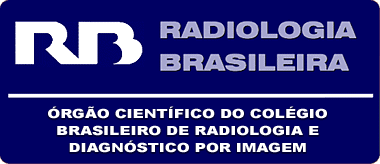In this study we reviewed the scans of 100 patients submitted to magnetic resonance angiography (MR angiography) of the brain for different clinical indications. The objectives of the study were to discuss the advantages and disadvantages of the 3D TOF in cerebral MR angiography, to review the main indications of MR angiography in the evaluation of intracranial vascular lesions, and to assess the frequency of the most important findings. The main indications for MR angiography were headache (n = 29), stroke (n = 14), transient ischemic attack (n = 11) and other causes (n = 35). In 11 patients the clinical indication could not be recovered from the patients records. Fifty two percent of the exams showed abnormalities. The main findings were vascular stenosis (n = 30), aneurysm (n = 10), anatomical variants (n = 6), vascular malformations (n = 4) and dural sinuses thrombosis (n = 2). The 3D TOF technique, the only technique applied in this study, proved to be efficient in most of the cases, requiring a relatively short acquisition time. One of the disadvantages was the lack of efficiency in covering large volume areas.
Magnetic resonance angiography; Brain; Cerebrovascular diseases












